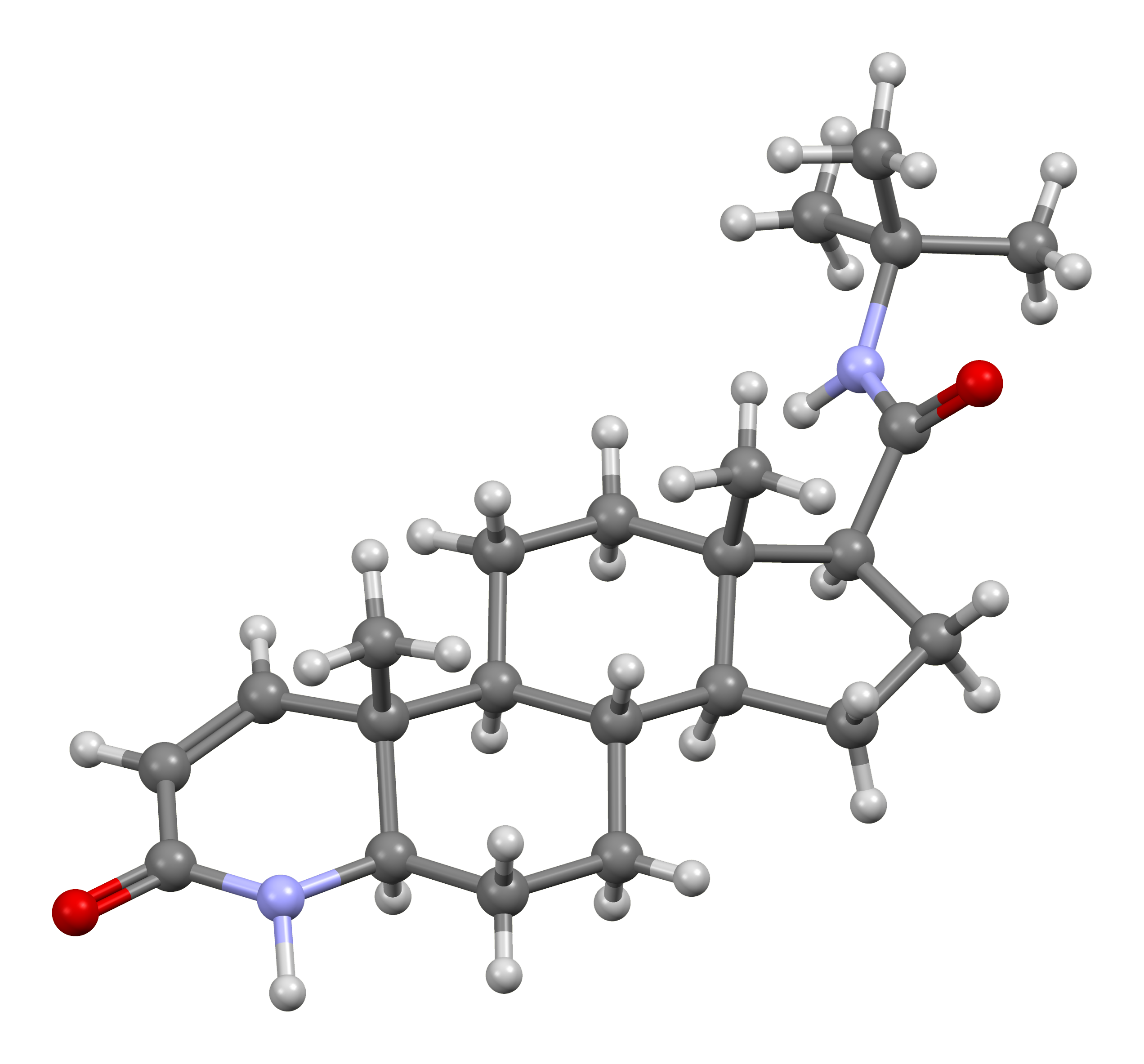| name | Finasteride |
| classification | 5-alpha-reductase inhibitor |
| pharmacokinetics | | absorption | Well absorbed orally, peak plasma concentration within 1-2 hours. | | distribution | Distributed throughout the body, including the prostate. High plasma protein binding (93%). | | metabolism | Metabolized extensively in the liver, primarily by the cytochrome P450 3A4 system. Active metabolites exist. | | excretion | Excreted primarily as metabolites in the urine. The elimination half-life is approximately 6-8 hours. |
|
| suggested dosage | | adult male | 5 mg orally once daily. |
|
| indications | | 1 | Benign prostatic hyperplasia (BPH) symptom management, to reduce urinary obstruction and improve urinary flow. | | 2 | Male pattern hair loss (androgenetic alopecia) in men. |
|
| safety in pregnancy | | details | **ABSOLUTELY CONTRAINDICATED IN PREGNANT WOMEN** and women of childbearing potential. Finasteride is known to cause severe birth defects in male fetuses, so women who are pregnant or who could become pregnant should not handle or come in contact with Finasteride tablets. Even trace amounts of Finasteride can pose a risk. | | warning | Strict precautions must be taken to avoid contact of Finasteride with women of childbearing potential, including careful disposal of unused medications and precautions against potential accidental ingestion. |
|
| safety in breastfeeding | Finasteride is not recommended for use in breastfeeding mothers. It is unknown if the drug is excreted in breast milk. |
| side effects | | 1 | Decreased libido and erectile dysfunction. | | 2 | Ejaculation disorders (e.g., reduced volume or quality of ejaculate). | | 3 | Breast tenderness or enlargement (gynecomastia). | | 4 | Headache, dizziness, or fatigue. | | 5 | Skin rashes or allergic reactions. | | 6 | Possible, but less frequent effects: Nausea, diarrhea, constipation, abdominal pain. |
|
| alternatives | |
| contraindications | | 1 | Pregnancy or possibility of pregnancy (women of childbearing potential). | | 2 | Hypersensitivity to finasteride or any of its ingredients. | | 3 | Known or suspected prostate cancer. | | 4 | Patients who have previously experienced significant side effects from Finasteride. |
|
| interactions | | 1 | May interact with certain medications metabolized by the liver. | | 2 | Caution is advised in patients using other drugs that affect the liver or the kidney. |
|
| warnings and precautions | | 1 | Long-term use may require regular monitoring of PSA levels. Finasteride affects serum prostate-specific antigen (PSA) levels. | | 2 | Patients should inform their doctor about any allergies or medical conditions, especially if they take other medications. | | 3 | Regular monitoring and evaluation of treatment response are necessary to evaluate effectiveness and potential side effects. | | 4 | Monitor patients for any signs of prostate cancer. Finasteride does not cure prostate cancer; it may only mask some symptoms. | | 5 | Avoid handling Finasteride if pregnant or might become pregnant. |
|
| additional information | | 1 | Finasteride works to decrease the size of the prostate gland. | | 2 | Take Finasteride exactly as prescribed. Do not adjust the dosage without medical advice. | | 3 | It may take several months to see a full response to treatment. |
|

